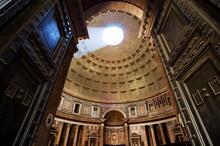How the Light Gets In
In 2017, a year before his death, I had a conversation about the state of the country with the Rev. Tony Jarvis, the founding director of the Educational Leadership and Ministry program at Berkeley Divinity School at YDS and the headmaster emeritus of The Roxbury Latin School in Boston. I recall my acting the part of doomsayer, and Father Jarvis brought our discussion to an end by saying he believed hope, not faith or charity, was the most important and most difficult virtue to hold.
“If you are struggling to live in hope,” Father Tony Jarvis once told his students, “you will in all likelihood turn to God.”
His collection of addresses to his students at Roxbury Latin, With Love and Prayers: A Headmaster Speaks to the Next Generation (Godine, 2000), is a chief reason I left the world of criminal prosecution in the American South to attend Yale Divinity School in the hope of beginning a life of teaching secondary school. Soon after this particular visit with Fr. Jarvis in his flat, I revisited his book because I remembered some words he delivered about hope:
Hope then should not be confused with optimism. Optimism denies reality and strives for pie in the sky. Hope begins by accepting the cruel realities of human existence – tribulation, injustice, danger, and death – and strives to find meaning in the face of these realities. (With Love and Prayers, p. 177)
In All Likelihood
I wonder daily what Fr. Jarvis would think of this moment, almost two years after he succumbed to cancer, age 79. From the killing of Black Americans at the hands of the police and vigilantes, to the confinement of young people inside their homes and in front of screens to learn, how would this lifelong educator and priest maintain hope? “If you are struggling to live in hope,” Fr. Jarvis once told his students, “you will in all likelihood turn to God.”
We often have to be brought to our knees by our own suffering or through the anguish of others we love to catch a glimmer of God. Another way to put this notion of divine presence is Christian Wiman’s “my bright abyss,” or Leonard Cohen’s lyric, “There is a crack in everything/That’s how the light gets in.”
If the crack is a global pandemic, I soon discovered how important hope is in conversations with fellow administrators while planning to reopen a school – the hope of our students to return, the hope of the faculty to feel safe, and the hope of parents to continue to trust us with their children. These hopes help us find, as Fr. Jarvis told his own students, “the motivation to live well in the midst of life’s realities.”
A Hopeful Pessimist
When our realities include the injustice that Black communities face, and a growing nationalism that threatens the tranquility of our neighbors, and an invisible virus that kills our own, and a severe learning loss for our youngest, what do I tell my own students? I say to them what Fr. Jarvis said to his: “that in the worst of times you did the best things, and in the most calamitous of times you hoped the best things.” And I try myself to believe what comes out of my mouth and to their ears.
I’m not a hopeful person by nature – my default position is that the worst will happen in any situation. But perhaps this is the best position to prepare for welcoming the light in the crack. “If you’re a hopeful pessimist,” Fr. Jarvis writes in another address to students, “you will again and again be surprised by joy when some of your hopes are, in fact, realized.”
Win Bassett ’15 M.A.R. is Associate Dean of Students at Montgomery Bell Academy in Nashville, TN.

